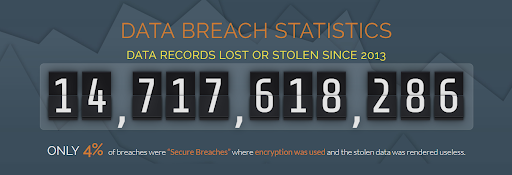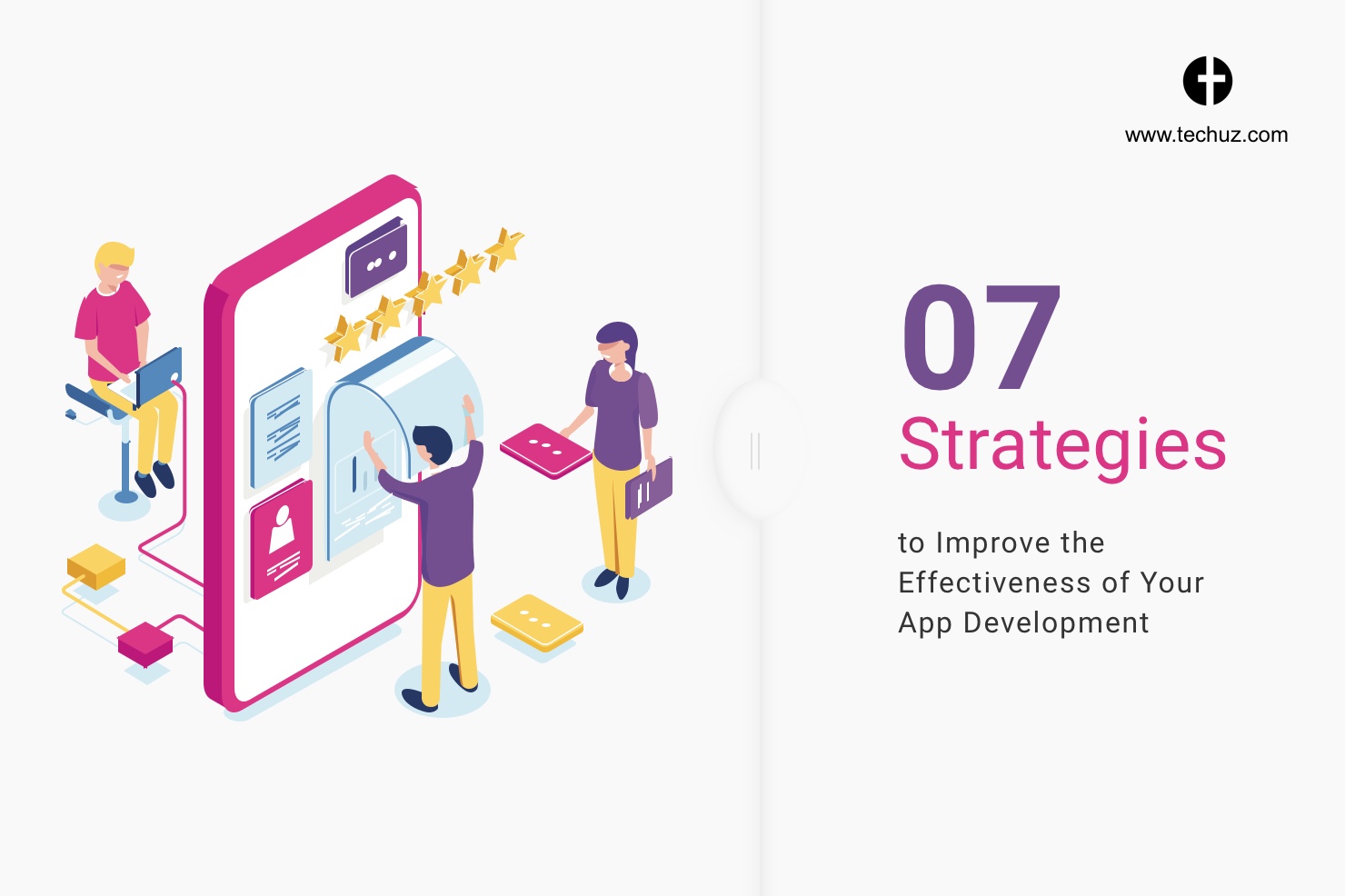Posted on
July 31, 2019
Updated on
March 20, 2024
Read time
 7 mins read
7 mins read
App development is a process that goes beyond the interface layout and visual design. To capture the attention of your target users, your app has to offer additional value in their lives. You can only determine what that value is when you truly understand who your audience is and what are their needs that are still waiting to be met.
Furthermore, you need to create an effective app development flow to prevent pitfalls in the process. To that end, you have to look at helpful strategies and apply them to your workflow.
Below, we discuss seven strategies that can aid you in improving the effectiveness of your app development.
1. Align your app with your business objectives
Before you begin your app development process, you have to consider the following questions:
- Who are you creating an app for?
- What are the features you want to include in your app?
- What will make your app different from your competitors’?
- What do you aim to achieve with your app?
- Which platform is the most appropriate?
These are important questions you need to answer before you go to the drawing board. The right app development software can make the building part easy for you but only when you have the answers to the above questions are you able to align your application development project with your business objectives. They also become your guidelines as you design and build your app so that you can concentrate. And by aiming your attention only at the goal, you can work faster on your app.
2. Consider rapid development
Rapid application development focuses mostly on being adaptive but you can still integrate this with your planning. This means that you can layout the things you have to do for your app but also leave room for adaptability.
When you take the rapid development approach, you can focus on creating an app that provides an excellent experience to users. This way, you can persuade your audience to keep on using your application.

What’s more, by adapting rapid development, you can be flexible in solving problems that arise during the process; you would not need to overhaul the entire foundation that you have laid out. Additionally, you can roll out updates faster at a later date to enhance your app’s functionalities and user experience.
3. Pay attention to user experience
User experience (UX) is defined by the Nielsen Norman Group as something that comprises every aspect of a user’s interaction with a brand, including its products and services. They also mentioned that the best user experience is possible only when you can meet the requirements of your intended users.
And as mentioned in the previous section, refined user experience is the key to keeping members of your target audience engaged. Without it, you may have a high number of app installs but a low number of active users. Case in point, Statista published a report that as of June 2019, the global app abandonment rate is at 25%. This means that individuals stopped using apps after using them only once.
However, in the second half of 2018, Statista recorded that 43% of global app users were still interacting with apps a month after they downloaded them. Meanwhile, 29% of mobile app users remained engaged for three months, which means the churn rate is at 71%.
You can hope for a high retention rate for your app when you are working on delivering the best user experience possible. You can do this by providing more interactive elements and by paying attention to how your apps can uplift users’ emotions or resolve issues they may be having.
4. Shift focus from app downloads to engagement
User engagement is as important as user experience. The key to keeping users engaged is to know what they need and by meeting those necessities. You can begin addressing this during the design phase so that you can add features and tools that are in demand among end-users. When potential users test your app, you can see which parts of your app they like to use most so you can enhance those sections. Of course, you can also find out which sections they do not use often or do not care about at all. You can begin determining the ROI of data that you gain from this once you generate new reports regarding user engagement after you have deployed new features.
There are also other analytics that can help you such as crash reporting, device model or type, mobile OS, and more that you can access with Business Intelligence (BI) tools or something similar. As long as you have knowledge of the way users are interacting with your app and of other relevant things, you can improve your features to increase engagement. This way, you can prevent issues from blowing up to the point that they have a huge negative impact on your app rating and on your organization’s reputation.
5. Integrate with relevant third-party solutions
When users do something on the web app, they expect to find the results of that action on the mobile app and vice versa. You can achieve this by integrating back-end systems as well as relevant third-party platforms. An API-first methodology can help, as it offers adaptability. This also gives users the ability to streamline the flow of information between your app and other apps that are crucial to them.
Apart from making the information flow seamless for your users, you can also unload a huge problem off your application developers’ shoulders: information stockpiling and frameworks of record recovery.
6. Boost security with cloud technologies.
According to Breach Level Index, there have been more than 14 billion data records that have either been lost or stolen since 2013. Among those, 4% were secure breaches, which means the data that was accessed illegally is useless.

Breach Level Index reports that more than 14 billion user data were lost or stolen from 2013 to present.
While users are concerned about their privacy and data security, they are not exactly interested in the particulars. That is why the burden rests on the shoulders of app developers to make sure that customers’ records do not fall into the wrong hands.
In this regard, leveraging the cloud in your app development can help you surmount plenty of security challenges. You can resolve these issues with strong authentication solutions and other mechanisms such as encryption and SSL via cloud services. Once you have ensured that, you can be confident that your users’ data is safeguarded.
7. Set policies for monitoring and governance
Problems may occur with your app no matter how much you have made certain that bugs have been eradicated. That is why it is imperative that you put in place policies for app monitoring and governance. You can configure these even if you are using an app development software for beginners. By doing so, you can resolve issues as soon as they arise and before they wreak havoc with your application.
Apart from that, you may also want to consider outlining policies for scaling and migration. There may come a time when your current system or infrastructure would be enough. When that day rolls in, with scaling and migration guidelines, you would be able to complete the required IT development process with little to no problem.
Implementing app development strategies
There are numerous strategies that exist that can help transform your app development. Those written above are only a few but they can already have a huge impact on your app development workflow. The changes may not be apparent at first, but as you continue implementing them, you may find that your app development team’s performance has become better.








